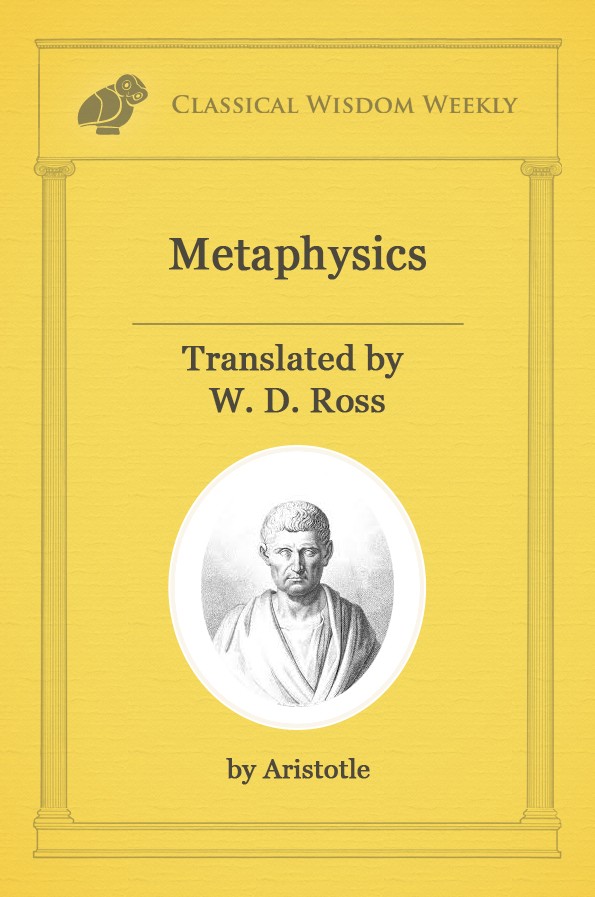By Aristotle
Written 350 B.C.E
Translated by W. D. Ross
Book VIII
Part 1
“WE must reckon up the results arising from what has been said, and compute the sum of them, and put the finishing touch to our inquiry. We have said that the causes, principles, and elements of substances are the object of our search. And some substances are recognized by every one, but some have been advocated by particular schools. Those generally recognized are the natural substances, i.e. fire, earth, water, air, &c., the simple bodies; second plants and their parts, and animals and the parts of animals; and finally the physical universe and its parts; while some particular schools say that Forms and the objects of mathematics are substances. But there are arguments which lead to the conclusion that there are other substances, the essence and the substratum. Again, in another way the genus seems more substantial than the various spccies, and the universal than the particulars. And with the universal and the genus the Ideas are connected; it is in virtue of the same argument that they are thought to be substances. And since the essence is substance, and the definition is a formula of the essence, for this reason we have discussed definition and essential predication. Since the definition is a formula, and a formula has parts, we had to consider also with respect to the notion of ‘part’, what are parts of the substance and what are not, and whether the parts of the substance are also parts of the definition. Further, too, neither the universal nor the genus is a substance; we must inquire later into the Ideas and the objects of mathematics; for some say these are substances as well as the sensible substances.
“But now let us resume the discussion of the generally recognized substances. These are the sensible substances, and sensible substances all have matter. The substratum is substance, and this is in one sense the matter (and by matter I mean that which, not being a ‘this’ actually, is potentially a ‘this’), and in another sense the formula or shape (that which being a ‘this’ can be separately formulated), and thirdly the complex of these two, which alone is generated and destroyed, and is, without qualification, capable of separate existence; for of substances completely expressible in a formula some are separable and some are separable and some are not.
“But clearly matter also is substance; for in all the opposite changes that occur there is something which underlies the changes, e.g. in respect of place that which is now here and again elsewhere, and in respect of increase that which is now of one size and again less or greater, and in respect of alteration that which is now healthy and again diseased; and similarly in respect of substance there is something that is now being generated and again being destroyed, and now underlies the process as a ‘this’ and again underlies it in respect of a privation of positive character. And in this change the others are involved. But in either one or two of the others this is not involved; for it is not necessary if a thing has matter for change of place that it should also have matter for generation and destruction.
“The difference between becoming in the full sense and becoming in a qualified sense has been stated in our physical works.
Metaphysics by Aristotle – Book VIII









